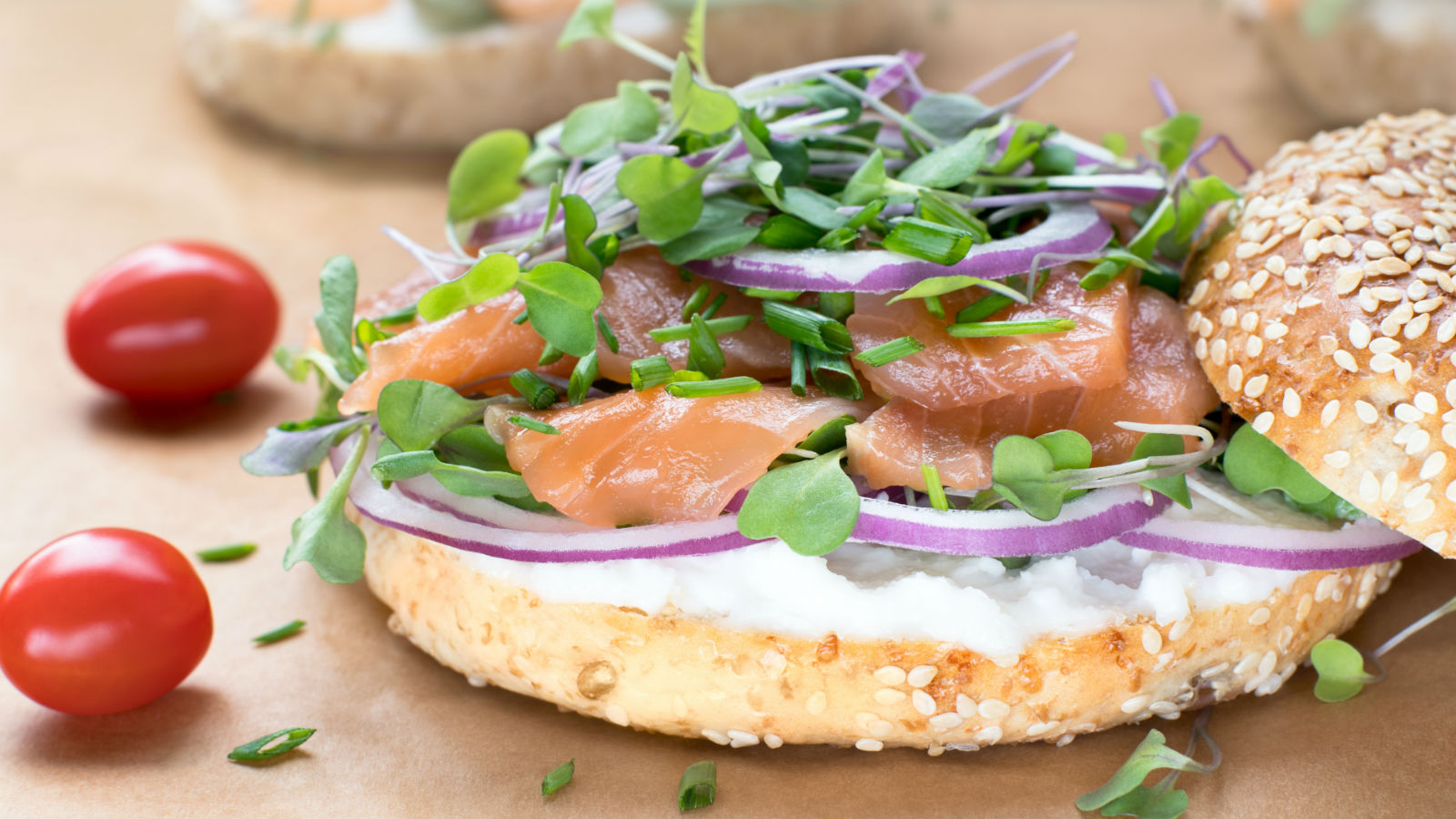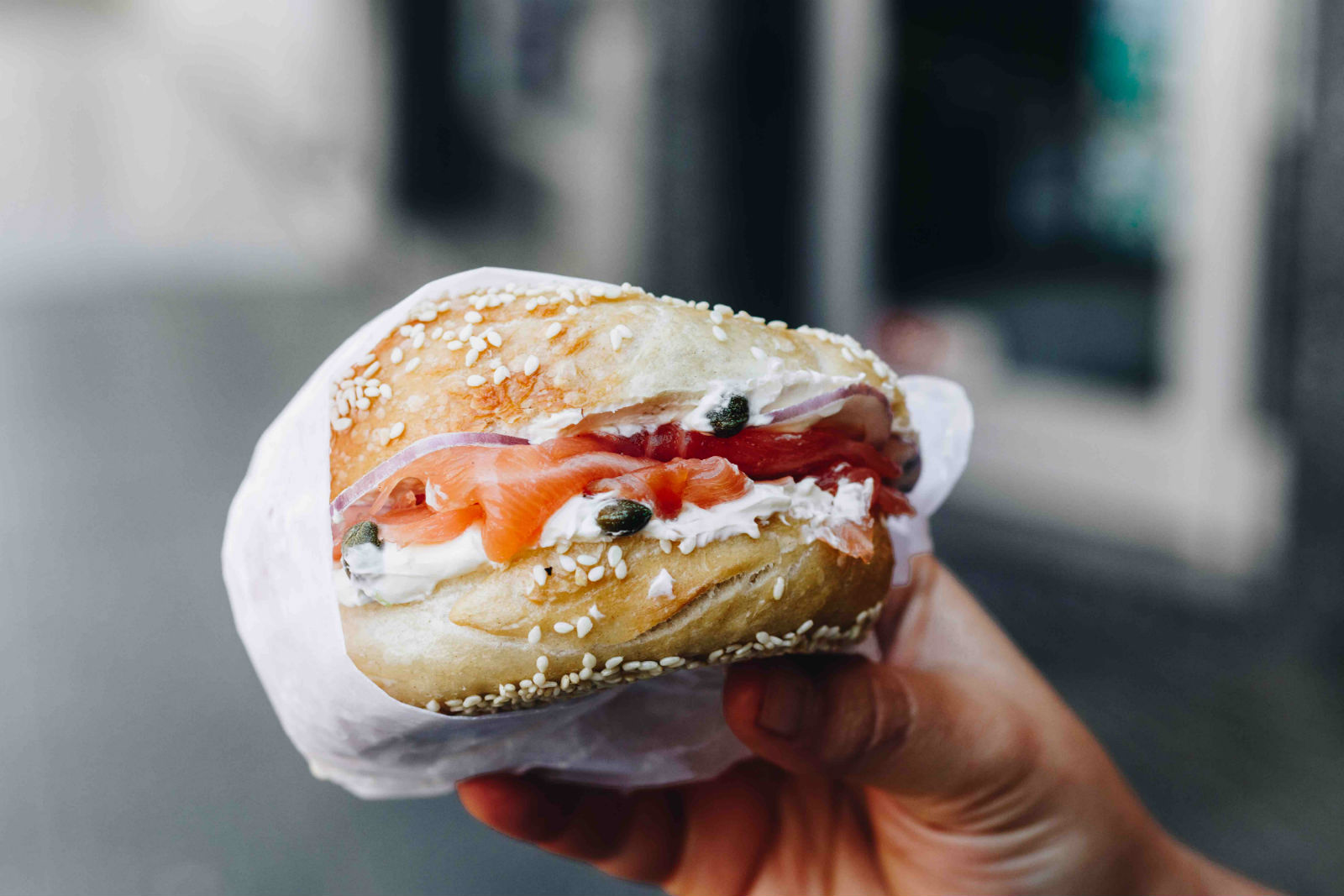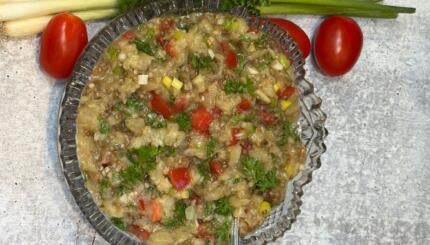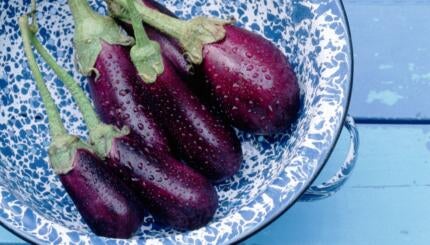Did you know there’s a whole world of great bagel eating beyond North America? Well, it’s true. While New York, and even Montreal, have become synonymous with bagels, there are an increasing number of high-quality bagel eateries cropping up all over the world. And they take their bagel making very seriously.
France
Eastern European Jews brought the bagel to Paris almost a century ago, around the same time they were introduced to New York. While bagels became a State-side phenomenon, they never really took off in France and were relegated to kosher bakeries.
That all began to change in 2010 when American cuisine had a burst in popularity across France. The bagel was reintroduced as a trendy, low-fat snack and became widely available across Paris. The only hitch was the French bread culture; Parisians just weren’t down with the bagel’s kettle-boiled chew. So Pagels (Parisian-style bagels, duh) are characterized by shape alone — the dough is far closer to a baguette. While in Paris you can get a taste at one of the five Ari’s Bagels branches across the city.
Germany
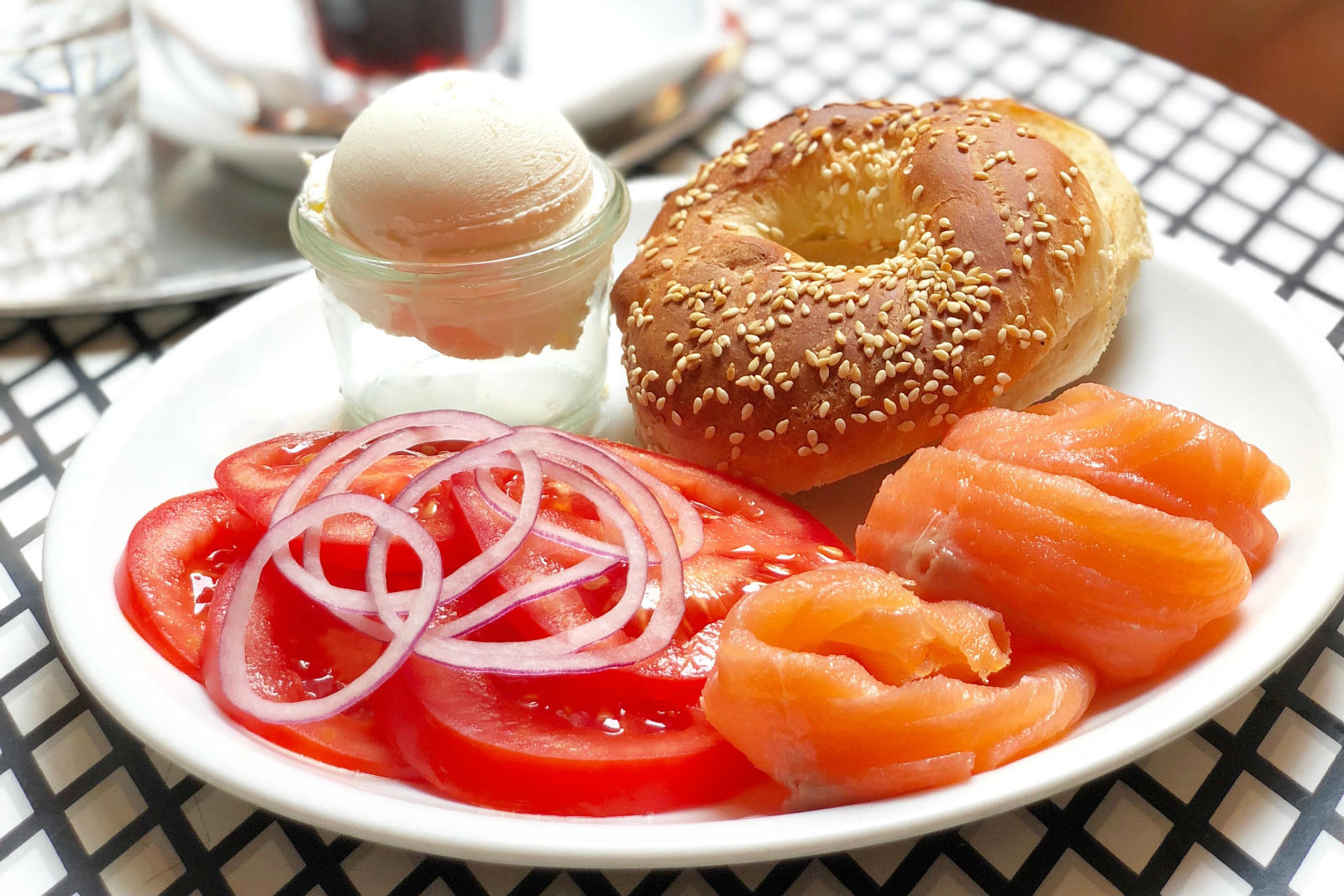
The Nosher celebrates the traditions and recipes that have brought Jews together for centuries. Donate today to keep The Nosher's stories and recipes accessible to all.
Come to Germany for the beer, stay for the bagels? That’s right, Berlin’s very own Fine Bagels makes some seriously delicious New York-style bagels. It’s founder, Laurel Kratochvila, is originally from the Boston area and when she couldn’t find a bagel that reminded her of home, she decided to become a master bagel maker and produce them herself. They have lots of classic flavors, but if you visit make sure to try the rye bagels with a horseradish schmear.
Russia
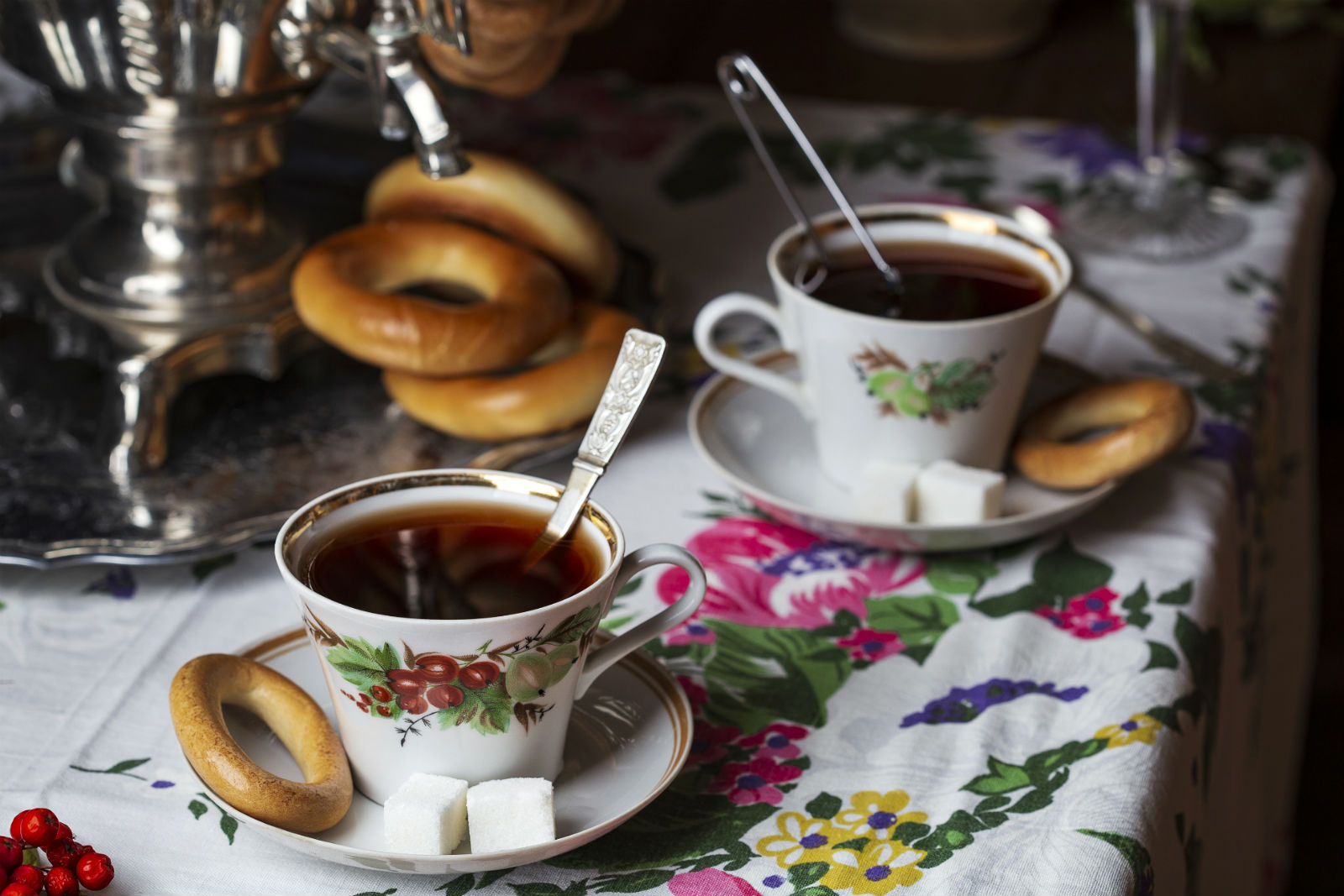
Russia boasts a strong bread culture, and bubliki is the closest to the American bagel. The word bubliki is derived from an old Slavic word meaning “bubble” — pretty cute. Like New York-style bagels, bubliki are boiled then baked, but typically sweeter and denser than what Americans may be used to. They can also sometimes be much bigger than your average New York version — with a slightly larger hole, too. They’re usually coated in poppy seeds, though some savory versions are rolled in cumin.
Bubliki are actually never eaten for breakfast, but more often enjoyed as a midday snack alongside a cup of tea. These are old-school bagels, as comforting as a worn pair of flannel pajamas. You’ll find them in bakeries country-wide.
Japan
View this post on Instagram
You’ve seen what Japan did to the Kit Kat, so steel yourselves for its take on the bagel. Like French interpretations, the bagel-iest thing about Japanese versions is the shape. The dough tends to be lighter and sweeter — there’s also a springy “mochi mochi” variation made with glutinous rice flour — and the fillings have no bounds. At Tokyo’s Tanuki Appetizing you can stuff your bagel full of strawberry-white-chocolate-tofu cream cheese, or persimmon and prosciutto (which actually sounds delightful). Country-wide, you’re as likely to find a green-tinged, matcha-infused bagel as a sesame seed one.
If you really can’t deal with deviation from tradition, the Seattle-based bakery Eltana just opened up a branch near Osaka, offering their distinctive brand of wood-fired bagels. Tokyo also hosts an outpost of San Francisco’s much celebrated Wise Sons Deli. But honestly, where’s the fun in that?
Argentina
Argentina is probably best known for their alfajores, steak, and fabulous wine. But they also have a vibrant Jewish food scene including — that’s right — New York-style bagels. In 2014, New York native Jacob Eichenbaum-Pikser started selling bagels off of his bicycle outside specialty coffee shops, and in December 2018 opened a brick and mortar shop, Sheikob’s Bagels. Sheikob’s features all the classic bagels, cream cheese, and lox beloved in New York as well as the “Mexican,” featuring cilantro-roasted tomatoes and jalapeño cream cheese.
